Ray Comfort's Blog, page 35
April 30, 2012
Chapter Twelve: Heat of the Naked Flames
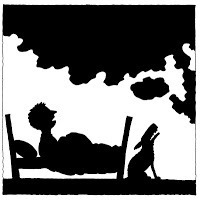 Jerry’s eyes widened with interest as he listened the Mr. von Ludendorff’s question as he sat in the von Ludendorff house in Poland. Even though the preacher was speaking to a congregation, it was as though Jerry was on the only one in the room: "What is this mystery of Christ? Have you discovered it yet? Thank God I did when I was a young man.” . Then Mr. von Ludendorff's eyes looked directly at him as he inquired again, "What is the mystery of Christ? Do you know?" There was a loud banging on the door. Nazis! Jerry could hardly breathe. Fear gripped him as he sat in the room staring at an orange glow behind the preacher's head. Fire! The Nazis were setting the house on fire! The confusion was added to by the sound of a barking dog. He began to cough violently. Mr. von Ludendorff stood among the confusion and yelled,
Jerry’s eyes widened with interest as he listened the Mr. von Ludendorff’s question as he sat in the von Ludendorff house in Poland. Even though the preacher was speaking to a congregation, it was as though Jerry was on the only one in the room: "What is this mystery of Christ? Have you discovered it yet? Thank God I did when I was a young man.” . Then Mr. von Ludendorff's eyes looked directly at him as he inquired again, "What is the mystery of Christ? Do you know?" There was a loud banging on the door. Nazis! Jerry could hardly breathe. Fear gripped him as he sat in the room staring at an orange glow behind the preacher's head. Fire! The Nazis were setting the house on fire! The confusion was added to by the sound of a barking dog. He began to cough violently. Mr. von Ludendorff stood among the confusion and yelled,"Awake thou that sleepest. Awake from the dead and Christ shall give thee light!" The barking of the dog became louder and louder.
Suddenly, Jerry awoke from the terrifying nightmare, coughing in his smoke‑filled bedroom. The house was on fire! That part was no dream! Connie lay unconscious next to him. He quickly pulled her from the bed onto the floor. Many times during the war he had crawled through smoke‑filled rooms and he knew that breathable air would be trapped close to the floor. Elizabeth and Johnny! They lay in their beds in the next room. He reached up and felt the wooden door. It was cold, so he quickly opened it. Their room was also full of smoke. He held his breath, stood to his feet, grabbed the children and crawled back to his wife. As he did so, he could hear the incessant barking of one of the dogs.
To be continued...
For Evangelism Resources, please visit LivingWaters.com.
Published on April 30, 2012 06:30
April 27, 2012
Discussions
 Connie's old flame kept his word, and the couple laughed together as they read about themselves and looked at a large picture of the both of them clad in farm gear and standing next to their beloved dogs. The only mention of the war was a small piece of alliteration, with which the reporter couldn't help but finish his article. It merely said,
Connie's old flame kept his word, and the couple laughed together as they read about themselves and looked at a large picture of the both of them clad in farm gear and standing next to their beloved dogs. The only mention of the war was a small piece of alliteration, with which the reporter couldn't help but finish his article. It merely said,"The Adamson's love their life in Otley; especially American‑born Mr. Adamson, who says frankly that he finds farming a far cry from when he fought fearlessly for four years fighting for the French Freedom Fighters." That made them laugh even more.
There was now another mouth to feed on the famous farm. The new edition was a seven-pound baby girl named Elizabeth. The arrival changed their lives radically. No longer did they go out together in the cool of the early morning to the barn to release the dogs, and trips in the truck entailed only Jerry and the two wagging tails. The baby had to be taken care of and that was something they both accepted gladly. Six months later, she was pregnant again with what turned out to be a boy they named Johnny.
The change in their lifestyle was the main reason Jerry took on a hired hand. The new worker's name was Bill Lovock and when he showed up at the farm one day looking for work, Jerry hired him on the spot. He was a good worker but he kept to himself. That didn't worry Jerry too much because he liked the private seclusion of his own lifestyle with his family.
Bill Lovock did however, open up when it came to one subject‑‑the war, but those conversations were one‑sided. The "discussions" were more Bill giving his opinion rather than the two of them discussing anything. The man seemed to have some sort of resentment towards Winston Churchill, which wasn't unheard of. Some were jealous of his political success, and Jerry had merely written off Bill's attitude as "everyone to his own."
About a week after the new worker was hired, they received a call from the Adamson's accountant in Texas. It wasn't unusual to get mail from the States, but it was uncommon to get a long distance call. Jerry's mother often wrote and told him what was going on in his native country and her letters were always positive and informative. But Connie watched his face turn pale as he listened to the Texas drawl on the other end of the line.
The man gently explained that he had some very sad news. Mrs. Adamson had been tragically killed in a head‑on collision with a cattle truck when she was returning from Dallas late the previous night. After surveying the scene and finding no skid marks, the police came to the conclusion that she had gone to sleep at the wheel of her pickup. The other driver had been treated at the hospital and released. Vance, the accountant insisted that there was no need to return to the U.S., and that he would arrange the funeral and send him details on the farm's financial status.
To be continued...
For Evangelism Resources, please visit LivingWaters.com.
Published on April 27, 2012 06:30
April 26, 2012
Real heroes.
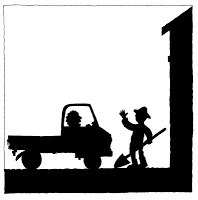 In February of 1946, Connie returned from a routine visit to the doctor. Her face glowed as she drove the flatbed and parked it by the barn. Jerry came out of the barn holding a shovel in his hand, and as he opened the truck door he asked,
In February of 1946, Connie returned from a routine visit to the doctor. Her face glowed as she drove the flatbed and parked it by the barn. Jerry came out of the barn holding a shovel in his hand, and as he opened the truck door he asked,"Well, what's the verdict?" She beamed from ear to ear and said in her broad accent,
"Doctor says there's a bun in the oven; you are going to be a father!"
Some time later the "bun" was almost baked, and as Connie emerged from a checkup at the clinic she met an old school friend. During her school years she had had a crush on him and even dated him once or twice, but in just ten years he had changed. He had lost a little hair, and working for the local newspaper at a desk job coupled with good home baking had given him a pot belly. Connie smiled as she thought that she must look the same to him, but her belly wasn't the result of lack of exercise.
As they stood by her truck, he quizzed her on what she had been doing since the war. It took about ten minutes to fill him in on her new life. When she let slip that Jerry was with the French Resistance for four years, he raised his eyebrows and said,
"I would love to do a story about you two; nothing sensational, just a local human interest story. What do you say?" Connie knew that Jerry didn't like to boast about the war, so she smiled and said she would talk it over with him, and they agreed that he would phone her the next day.
Two weeks later, a half‑page article appeared in the local newspaper. Jerry had agreed to the story, as long as the reporter put emphasis on the fact that he was an American who had married a local girl, and not on the war. If any mention was made that he was a freedom fighter for the Resistance, people may begin thinking that he was some sort of war hero. To him the real heroes were men like Jacques and the Allied soldiers who lay dead on the beaches of Normandy.
To be continued...
For Evangelism Resources, please visit LivingWaters.com.
Published on April 26, 2012 06:15
April 25, 2012
Chapter Eleven: A Faithful Friend
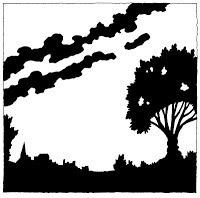 When Connie's aunt became ill with tuberculosis they moved to Otley to nurse her. Two months later, she tragically died, and left her cottage to Connie. They sold the property and with the proceeds together with a bank loan, purchased a sheep farm just north of Otley.
When Connie's aunt became ill with tuberculosis they moved to Otley to nurse her. Two months later, she tragically died, and left her cottage to Connie. They sold the property and with the proceeds together with a bank loan, purchased a sheep farm just north of Otley.Jerry loved the green countryside. Parts of it reminded him of France, especially around the Oradour‑sur‑Glane district. The two of them would arise in the cool of each morning at six o'clock and begin the many duties around the farm. They had two sheep dogs that Jerry purchased to help round up the sheep. One of them was a pure breed border collie that he named "Faithful." The other was a cross he purchased very cheaply from the local pound. Both dogs were instinctive when it came to rounding up sheep, but Faithful was particularly intelligent. Jerry gave the animal that name because of the character of the breed.
Connie and Jerry loved walking together to the barn and unleashing the dogs first thing in the morning. The animals would yelp with excitement, wag their tails and almost choke themselves on their leashes as they pulled at the ropes that restrained them. As soon as they were released, Faithful would run around in circles of delight, at the prospect of getting onto the back of the truck. Both dogs would stand right on the edge of the flatbed and lean into the wind, their eyes scouring the horizon of the fields as though they had never seen the countryside before.
Rarely did the Adamsons leave the farm. They saved every penny and purchased a small herd of milking cows, and the milking was a twice-daily happening. Even if one of them went into Otley for supplies, it was never for more than half a day.
To be continued...
For Evangelism Resources, please visit LivingWaters.com.
Published on April 25, 2012 06:15
April 24, 2012
In love.
 Friends at work would often encourage Jerry to join them and play darts at a local pub. It was at the pub that he met Connie, a quiet lass with a strong Yorkshire accent. One day, he noticed that she was watching his every move as he played darts with a friend, so he offered to buy her a drink. She accepted and it wasn't long before they had established a friendship.
Friends at work would often encourage Jerry to join them and play darts at a local pub. It was at the pub that he met Connie, a quiet lass with a strong Yorkshire accent. One day, he noticed that she was watching his every move as he played darts with a friend, so he offered to buy her a drink. She accepted and it wasn't long before they had established a friendship.Connie was petite, very pretty, had warm brown eyes, blondish natural curly hair, and a typical light British complexion. She had been moved from London to the small town of Otley at the outbreak of the war when she was fourteen years old. Her parents sent her to live with an aunt for safekeeping. Both her parents were killed in the bombing raids and their bodies were never recovered. The first time they sat together and ate fish and chips, he asked her about her past and she wept openly as she spoke of her folks. There were a lot of tears in London.
Jerry fell deeply in love with this soft‑spoken young lady. He loved everything about her, including her strong accent. She was different from the confident girls he grew up with back home. She was very reserved, and because of the loss of her parents he felt an empathy with her. When he put a comforting arm around her as she wept, it made him feel good. It uncovered a tenderness he had forgotten that he possessed. He loved the fact that she listened to him when he spoke, and he would often catch her staring at him for no reason as they ate lunch together. They were married in a small Anglican church not too far from Jerry's apartment.
To be continued...
For Evangelism Resources, please visit LivingWaters.com.
Published on April 24, 2012 10:50
April 23, 2012
Chapter Ten: Liberation!
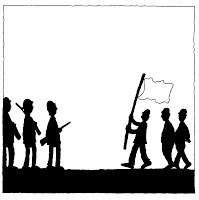 London was in ruins. Hitler had terrorized the residents with his "miracle weapon"—the V‑1. The pilotless, jet‑propelled bomber carried over a ton of explosives and flew at a speed of 370 m.p.h. After one raid, Winston Churchill had the unenviable task of announcing to Parliament that the weapon had taken 2,752 British lives. However, the great statesman was confident that Germany would never conquer Britain.
London was in ruins. Hitler had terrorized the residents with his "miracle weapon"—the V‑1. The pilotless, jet‑propelled bomber carried over a ton of explosives and flew at a speed of 370 m.p.h. After one raid, Winston Churchill had the unenviable task of announcing to Parliament that the weapon had taken 2,752 British lives. However, the great statesman was confident that Germany would never conquer Britain. In a broadcast via the BBC to the French, he said,
"We are waiting for the long‑promised invasion. So are the fishes."
A short time after the V‑1 attacks, despite the massive loss of life on the beachfront, the Allies drove back the Germans from the shores of Normandy and took out the launching pads for the V‑I rockets. The battles had raged from June 6 through June 27, and at times the German defense seemed almost invincible. They had stationed a row of four "pillboxes" which stopped the Allies in their tracks.
Finally at the end of June, soldiers were able to advance close enough to destroy them by tossing grenades through their ventilators. The two freedom fighters joined themselves to allied forces and discovered a tunnel in the southern quarter of Cherbourg. When smoke from Nazi gunfire spewed out, the Americans decided that they would blast the tunnel open.
Just as they decided to do that, a private emerged holding onto a white flag. He told one of the American commanders that General Carl von Schlieben was within the tunnel and wished to surrender. Jerry watched in delight as 800 soldiers emerged from the tunnel. A total of 30,000 German soldiers surrendered to the Allies at Cherbourg.
Even as the Allies advanced across Europe, Hitler continued bombarding London using V‑2 rockets. These carried the same amount of explosives as the V‑1, but they were faster and deadlier. They traveled at the speed of sound and it was almost impossible to detect their approach.
Before taking his leave of France, Jerry decided to backtrack with the Allies to enjoy the sweetness of taking Paris back from the Germans. The liberation began on August 25, 1944, when General Charles de Gaulle led a tumultuous parade through the streets of Paris, and that night church bells rang all over the city.
Despite the devastation Jerry found in London, he liked being in England. The British made a "Yank" feel special.
After the war ended he decided he would try and recapture his lost youth. He was still in his twenties and as far as he could see, he had two options. He could either return to Texas and join his mother on the farm, or he could begin a new life in England. He had reestablished contact with his mom and she was doing fine. The friend his father left managing the farm had been able to get it on its feet financially, and it was drawing a healthy wage for both himself and Jerry's mom. So, he decided that he would try living in England and if it didn't work out, he would return to the U.S.
After he had made his decision to stay, he applied for a job with a government construction company in London. There was no shortage of work, as London had to be rebuilt. It was physically hard work but the pay was good, and because he was single he was able to save most of his paycheck. It wasn't long before he had his own car and had moved to a better apartment in Wembley, on the outskirts of London.
To be continued...
For Evangelism Resources, please visit LivingWaters.com.
Published on April 23, 2012 06:15
April 20, 2012
Liberation
 Jacques was a cool character. He picked up a mug from the dirt and poured coffee from a flask in front of him. Then he sipped it as he drank in the sight on the horizon. Jerry smiled and gently patted the weapon as if he was patting a dog that was pulling at the leash, wanting to attack its prey.
Jacques was a cool character. He picked up a mug from the dirt and poured coffee from a flask in front of him. Then he sipped it as he drank in the sight on the horizon. Jerry smiled and gently patted the weapon as if he was patting a dog that was pulling at the leash, wanting to attack its prey.When the morning light spread across the beach below them, they could see tens of thousands of German machine‑gunners, as far as the eye could see, lying in the sand behind tufts of grass. As the Allied forces approached the shores, the horizon darkened as the skies filled with air support. When the roar of the planes became louder, a German voice came over the radio that was lying in the soil of the bunker. It said,
"You have your orders. May God be with you." That made Jerry fume.
Suddenly, there was a massive boom of artillery as the 450‑mm guns behind them blazed against the Allies and signaled the machineguns to open‑fire on the troops that were pouring onto the beach. Jerry immediately turned the gun to the left and discharged a mass of bullets into the bunker less than 60 feet from him. Then he lifted his sights and he did the same with the one next to that. Then he swung the firearm towards the hoards of German soldiers that lay on the beach below him and rained bullets onto them as Pierre fed the hungry gun its fill of ammunition.
The sight of so many allied soldiers being hit by the torrent of German bullets was too much for Jacques. Masses of them were being killed before they even had a chance to reach the shore. Their dead and wounded bodies floated among the blood‑crimson foam of the waves. These were men who were giving their lives to liberate France. With total disregard of the fact that he would be seen by rows of German artillery stationed about 100 feet back from the cliff edge, Jacques climbed out of the shelter of the bunker. He then ran across to the bunker containing two dead Germans and pushed their bodies aside. In the heat of battle, he picked up two machineguns and with one in each hand, ran to the back of the third bunker of stunned Germans who didn't expect to be attacked from behind, filling them with lead. Then he hurtled himself into it and began firing like a madman at everything that moved. It was a suicide mission. Predictably, there was a sudden and massive explosion right on top of the bunker into which Jacques had climbed, as the Germans put an end to the life of this courageous Frenchman.
On that one special day, the Allies landed around 156,000 troops in Normandy. The American forces landed a total of 73,000: 23,250 on Utah Beach, 34,250 on Omaha Beach, and 15,500 airborne troops. In the British and Canadian sector, 83,115 were landed (61,715 of them British): 24,970 on Gold Beach, 21,400 on Juno Beach, 28,845 on Sword Beach, and 7900 airborne troops. A massive total of 11,590 aircraft were available to support the landings.
Approximately 2700 British, 946 Canadians, and 6603 American soldiers were killed. The total German casualties on D-Day are not known, but are estimated as being between 4000 and 9000 men.
To be continued.
For Evangelism Resources, please visit LivingWaters.com.
Published on April 20, 2012 06:15
April 19, 2012
Prayers of millions
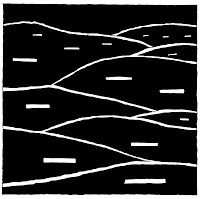 As the sun rose, they peered in amazement at the sight before them. As far as the eye could see, there were masses of German high‑powered artillery set back from the edges of the cliffs. On the cliff edges were bunkers, each containing two soldiers with machineguns. As Jacques looked at the incredible scene of so many guns and men, he broke the silence with,
As the sun rose, they peered in amazement at the sight before them. As far as the eye could see, there were masses of German high‑powered artillery set back from the edges of the cliffs. On the cliff edges were bunkers, each containing two soldiers with machineguns. As Jacques looked at the incredible scene of so many guns and men, he broke the silence with,"Dear God, if they land on this beach, they will be slaughtered."
During the hours of that day, the men remained in the thicket on the cliffs, straining their eyes towards the horizon, planning what they would do. They decided to wait until nightfall and get as close as they could to the bunker at the right‑hand end of the cliffs. That position was strategic as it was a little higher than the rest of the area.
It was 6: 00 a.m. the next day. Without taking his eyes away from the small pair of binoculars he held in his hand, Pierre suddenly awakened the two sleeping men with his hand and said,
"There they are!" Jerry shook the sleep from his eyes, took hold of the glasses and uttered,
"Look at that sight . . . " It truly was an awesome spectacle. It was still dark, but the entire horizon glowed with the pre‑dawn sun and stood as a backdrop for the blackened silhouettes of 5,000 battleships . . . Allied battleships. Jerry stared at the sight. This was the trumpet‑blowing cavalry coming for the remnant of fighting soldiers. It was a realization of the prayers of millions in war‑torn Europe.
Little did he know that the majority of troops who landed on the D-Day beaches were from the United Kingdom, Canada and the U.S. but that there were also courageous soldiers Australia, Belgium, Czechoslovakia, France, Greece, the Netherlands, New Zealand, Norway and Poland.
There was no time to spare. The three men quickly covered their faces with charcoal and scurried down the hillside towards the first bunker. They knew that every German eye would be toward the horizon. With the glow of the pre‑dawn sun, they could see the outline of two men sitting beside a large machinegun. One had his hand readied on top of the weapon and his eyes on the horizon. The other was also staring silently in the same direction, as steam rose from his right hand revealing that he was holding onto a hot drink. In the cold hush of the morning the three resistance fighters silently slid down into the bunker. Either the Germans thought it was their friends joining them in the bunker, or they were so intent on the enemy in front of them they didn't hear the enemy behind them. It was almost too easy as the three resistance fighters cupped their hands over the mouths of the Germans, pulled them to the ground and thrust their knives into their bodies. They quickly pulled them to one side, stripped them of their jackets and helmets, then Pierre and Jerry put them on and took hold of the machinegun. The next outpost was a mere sixty feet away, but the operation had been so quiet they hadn't aroused any suspicion.
To be continued.
For Evangelism Resources, please visit LivingWaters.com.
Published on April 19, 2012 06:15
April 18, 2012
The General
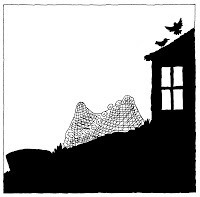 The three men decided that it would be too risky to drive into the village or to try and return to Paris that night. The Germans wouldn't want French fishermen rising up at their backs while the Allies were attacking at the front. There was no doubt that they would have either imprisoned or shot the locals. They decided to travel by foot through the fields to the outskirts of the village and try and get particulars on what was going on.
The three men decided that it would be too risky to drive into the village or to try and return to Paris that night. The Germans wouldn't want French fishermen rising up at their backs while the Allies were attacking at the front. There was no doubt that they would have either imprisoned or shot the locals. They decided to travel by foot through the fields to the outskirts of the village and try and get particulars on what was going on.The three men crouched behind a small rowing boat and listened to the sound of German voices coming from the kitchen of a fisherman's modest home. They were about 500 yards from the center of the village near the edges of cliffs overlooking the English Channel. The roar of the waves on the still cold night made it difficult to hear what the voices were saying.
Suddenly the three men crouched low as the front door of the house swung open and an SS officer stood on the front porch. He looked around thoughtfully, then up to the clear sky and took a deep breath. Then he put his hand into his pocket and pulled out a flat silver case, slowly opened it as though his mind was elsewhere, took out a cigarette and hit the end of it against the palm of his left hand.
When he put the cigarette into his mouth and lit it, Jacques slowly lifted the binoculars that hung around his neck, up to his eyes. From the uniform he could see that this was "top brass"--a General. As the glow from the cigarette lighter illuminated the man's face Jacques whispered,
"It's Carl von Schlieben!" After smoking only half of the cigarette, the infamous General dropped it onto the wooden floor and put it out with his foot as though he had suddenly thought of something important, and walked back into the house.
Jacques longed to get closer, but the place was alive with activity, and two soldiers stood guard at the entrance. Pierre took hold of the glasses and moved to one side so that he could see through a window, almost choking Jacques as he did so with the strap that was still around his neck. He smiled as he lifted it over his head.
The General was leaning over something on the table in front of him. From what Pierre could see, two other Generals and four or five top SS officers stood around him. When one moved to one side he could see that they were looking at a map that was spread out on a table. It was obvious, with such an elite gathering, that this was the defensive strategy for the Ally invasion. Pierre said,
"From the information we have, and by the look of what's happening here, I would say the Allies will land in this area either tomorrow or the next day, on June 6." Jerry found out later that this was known as “D-Day.” The term "D-Day" was the date on which operations began. The day before D-Day was known as "D-1", while the day after D-Day was "D+1". This meant that if the projected date of an operation changed, all the dates in the plan did not also need to be changed. This was the case of the Normandy Landings. The Allied landing was originally intended to be on 5 June 1944, but at the last minute bad weather delayed it until the following day.
Pierre knew the area well and said that if it were where the Allies had chosen to land troops, they would be sitting ducks under the artillery on the cliffs. The men decided to wait until morning and see in the light of day the extent of the German military.
During the night, the three men made their way to a high area about two miles along the coast. From there they would be able to see the cliffs overlooking the Bale de la Seine.
To be continued.
For Evangelism Resources, please visit LivingWaters.com.
Published on April 18, 2012 06:15
April 17, 2012
Chapter Nine: Crawling With Germans
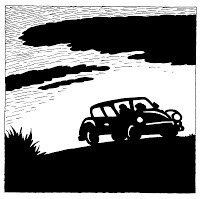 Jerry picked up his only possessions after nearly four years of fighting for the Resistance. They consisted of his sister's torn Bible, his father's .38 that he had used to kill two SS officers, and one change of clothes that he carried in a small brown leather suitcase. He had accomplished the sweetest of victories in Berlin, but he had seen too many terrible things for a man of his age. The Nazis had stolen his youth. Jerry desperately wanted to get out of France and leave behind his painful past.
Jerry picked up his only possessions after nearly four years of fighting for the Resistance. They consisted of his sister's torn Bible, his father's .38 that he had used to kill two SS officers, and one change of clothes that he carried in a small brown leather suitcase. He had accomplished the sweetest of victories in Berlin, but he had seen too many terrible things for a man of his age. The Nazis had stolen his youth. Jerry desperately wanted to get out of France and leave behind his painful past.He had abandoned his American papers since the U.S. entered the war, and instead traveled under French papers given to him by the Resistance. They arranged for him to be picked up and transported by car from Paris to the small fishing village of Port en Bessin. There a fishing boat would take him across the English Channel to Newhaven, where he would be met and taken to the British Foreign Office in London, 50 miles to the north.
As he and two members of the Resistance, Pierre and Jacques, set out on a cold and clear night of June 4, it should have been a simple thing for the three "fishermen" to return to their village after selling produce in Paris. But they had a growing uneasiness as they neared the coast. The remote area of the countryside was crawling with Germans. They passed battalion after battalion and trucks towing 20mm guns. Jacques said,
"I am from Port en Bessin and I have never seen it like this!" There were thousands of soldiers being transported and the checkpoints became more and more frequent.
The men grew silent as they approached the lights of what was normally a quiet fishing village. Pierre said,
"I don't like this." Jerry felt the same,
"Why don't we pull over to the side of the road?" Pierre didn't hesitate. He swung the car to the edge of the road and turned its lights off.
It was very dark as the men sat and stared ahead of them. They could hear the rumbling of tanks and trucks and see the silhouettes of artillery being driven through the tiny village.
"The invasion . . . they must have details of the invasion!" whispered Jerry. British intelligence had informed the Resistance on June 1, via a coded message on the BBC, of the Allies' invasion of France. However, because Jerry had withdrawn earlier from active work with the Resistance, he had not been privy to the particulars.
To be continued...
For Evangelism Resources, please visit LivingWaters.com.
Published on April 17, 2012 06:15
Ray Comfort's Blog
- Ray Comfort's profile
- 397 followers
Ray Comfort isn't a Goodreads Author
(yet),
but they
do have a blog,
so here are some recent posts imported from
their feed.



